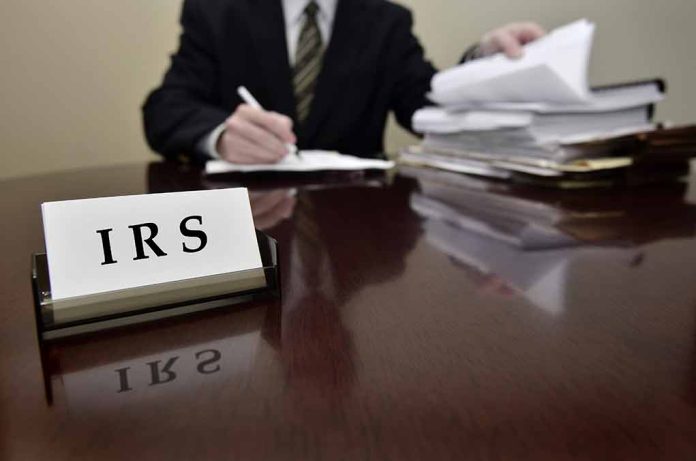🔴 Website 👉 https://u-s-news.com/
Telegram 👉 https://t.me/usnewscom_channel
IRS to dish out $2.4 billion in unclaimed tax rebates, leaving many wondering if they’ll get a slice of the pie.
At a Glance
- IRS to automatically distribute $2.4 billion in unclaimed Recovery Rebate Credits
- Approximately 1 million eligible taxpayers to receive up to $1,400 per person
- Payments expected by late January 2025, no amended returns required
- Eligibility based on income thresholds and 2021 tax return status
- IRS aims to streamline support for pandemic-related financial relief
Uncle Sam’s Belated Christmas Gift: $2.4 Billion in Unclaimed Rebates
In a move that’s sure to raise eyebrows among fiscal conservatives, the Internal Revenue Service (IRS) has announced plans to distribute a whopping $2.4 billion in unclaimed tax rebates to approximately 1 million Americans. This latest government handout targets those who failed to claim the Recovery Rebate Credit on their 2021 tax returns, a remnant of the pandemic-era spending spree that continues to haunt taxpayers.
While the Biden administration touts this as a win for the little guy, it’s hard not to see it as yet another example of government overreach and fiscal irresponsibility. The IRS, an agency not typically known for its generosity, plans to automatically distribute these funds by January 2025, without requiring amended returns. It’s a move that raises questions about the efficiency of our tax system and the competence of those managing it.
The Devil in the Details: Who Gets the Cash?
The eligibility criteria for these payments read like a socialist’s dream: single taxpayers with income under $80,000, married couples with combined income under $160,000, and heads of household with income under $112,500 are all in line for a payday. It’s a broad net that seems designed to catch as many voters as possible, rather than target those truly in need.
Werfel’s words ring hollow when considering the IRS’s track record of harassment and overreach against hardworking Americans. This sudden bout of generosity feels more like a political ploy than genuine concern for taxpayers’ well-being.
A Band-Aid on a Bullet Wound
While $1,400 per person might seem like a windfall to some, it’s a drop in the bucket compared to the financial devastation wrought by leftist policies during the pandemic. Lockdowns, business closures, and rampant inflation have left many Americans struggling to make ends meet. This belated handout does little to address the root causes of economic hardship.
“Looking at our internal data, we realized that one million taxpayers overlooked claiming this complex credit when they were actually eligible,” Werfel explained, inadvertently highlighting the Byzantine complexity of our tax code.
The fact that a million taxpayers missed out on this credit in the first place speaks volumes about the convoluted nature of our tax system. Instead of simplifying the process, the government’s solution is to throw more money at the problem, further bloating the national debt.
The Long-Term Cost of Short-Term Relief
As the IRS prepares to send out these payments, it’s worth considering the long-term implications of such policies. Every dollar distributed today is a dollar borrowed from future generations. The endless cycle of government handouts does nothing to address the underlying issues of economic mismanagement and fiscal irresponsibility.
While some may celebrate this unexpected windfall, responsible citizens should be asking hard questions about the sustainability of such practices. As we approach another election year, it’s crucial to remember that true economic prosperity comes from sound fiscal policy and limited government intervention, not from Uncle Sam’s checkbook.

